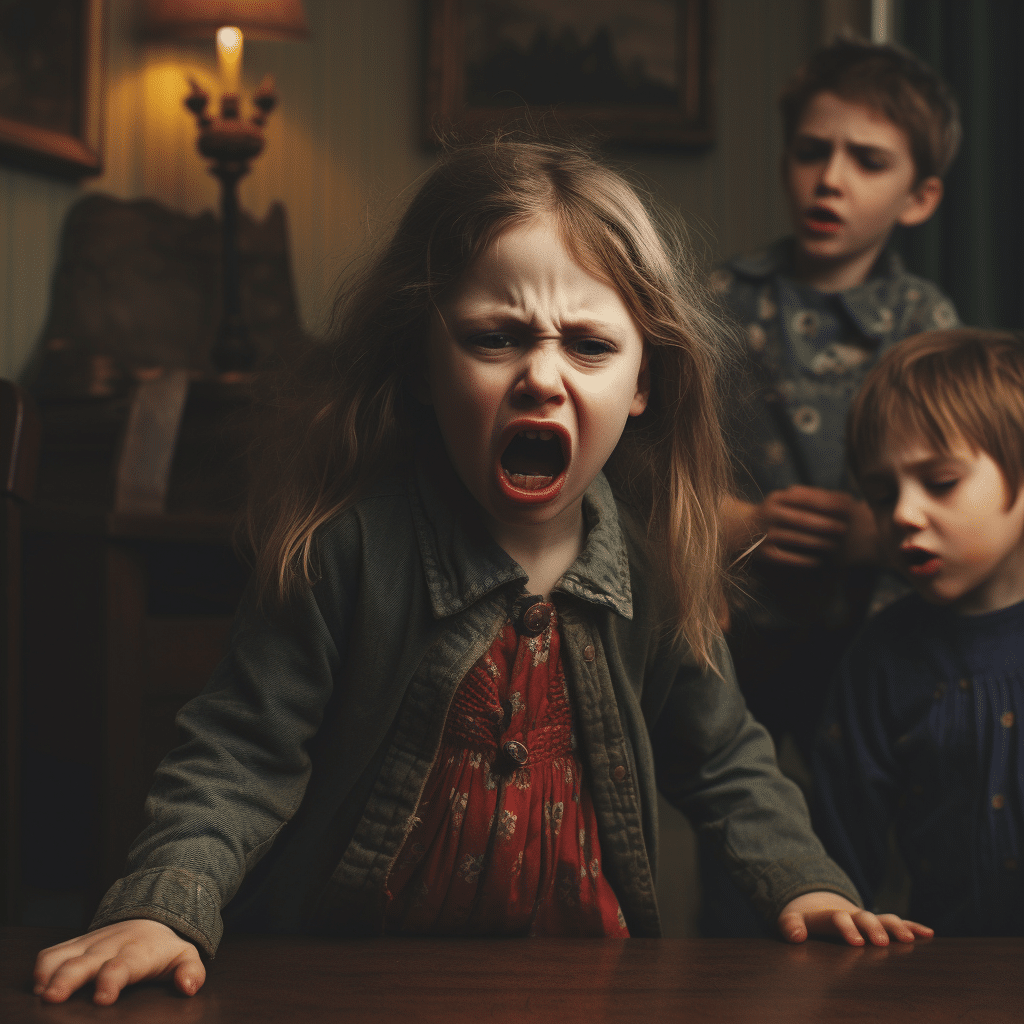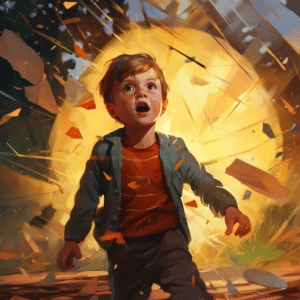
Why Do Kids Hit Themselves? Understanding and Solutions
Kids Hit Themselves: Your little one will always find a way to surprise you. Toddlers, especially, are experts at bringing a bit of pizazz to the day. However, it’s a jarring experience seeing your kid reach up and hit you for the first time. But what’s more confusing is seeing your toddler turn their anger inward and beat themselves.
Children may scratch or hit themselves or pound their heads against the floor or walls, even if they’ve never been physically disciplined. Why do they do this? Will they outgrow this behavior? What can you do to stop your kid from hitting themselves? And when should you seek professional help for your child? Let’s dig deeper.

Reasons Why Your Kid Hit Themselves
Here are possible reasons that can explain why your little one is hitting themselves:
Poor Communication Skills
If your child is undergoing big emotions, like fear, anger, confusion, or jealousy, but doesn’t know how to describe their feelings to you, they may hit themselves. To them, hitting themselves is the only way to tell you what’s happening in their heads. Your child may also be annoyed with themselves for not being able to express their feelings, leading them to smack their heads as a natural response to their frustration.
Seeking Attention
Young kids are tiny narcissists. They like having undivided attention, and they’ll do almost anything to get it. So, if you had a big reaction the first time your little one hit themselves, they may repeat the behavior to keep getting a rise out of you. Most parents would react negatively when they see their children smacking their heads – so don’t take offense.
Sometimes they may be hitting themselves to get a positive reaction. Your child could have seen their friend hit their head and decided to copy the behavior. And maybe when copying the behavior, you or your partner laughed. Now your little one might be smacking their heads, seeking that positive reinforcement again.
Self-Soothing
Some kids develop the habit of banging and rocking their heads rhythmically while trying to fall asleep. Pure says the rhythmic movement may be soothing as in a rocking chair. Most kids outgrow this habit when they grow and mature.
However, implement some noisy-control and safety measures in the meantime to ensure your kid is safe. If your little one is still sleeping in a crib, check for unsecured bolts and nuts, as the rocking can loosen them. You can also move the bed or crib away from the wall or hang cloth on the wall to dampen the banging.
Sensory Seeking
Kids love experiencing new sensations. As such, some may experiment with pinching or hitting themselves out of curiosity – the same way they grab a set of keys off the table and place it in their mouths. So, your little one hitting themselves could signify they want to experience new sensations.
To Get Relief From Pain
Anecdotal evidence points out that kids may bang their heads or hit themselves to get relief from pain. For instance, if your little one pulls their ears or hits one or both sides of their ears, that could be a sign of an ear infection. Similarly, if your baby hits and bites themselves, they might be undergoing pain associated with teething.
When To Worry About Your Kid Hitting Themselves
Although head banging is not something to worry about, sometimes it can be a sign of an underlying neurodevelopmental disorder like autism spectrum disorder or attention deficit hyperactivity disorder.
According to research by the Department of Educational Psychology at the University of Minnesota on 149 children aged 1-3 with older siblings who have autism, about 40% of children with autism displayed self-injurious behavior like head banging and self-hitting at age 1. The figure dropped to 25% for children aged 3. Generally, autistic children are four times more likely to injure themselves than their counterparts.
Autistic children may also display other behaviors like difficulty maintaining conversations, poor eye contact, and repetitive or restrictive behavior patterns. Suppose your kid’s self-injurious habits continue after one year or increase in severity or duration; consult a pediatrician to establish if that is a sign of developmental delay or other conditions.
How To Stop Your Kid From Hitting Themselves
Here are a few ways of helping your kid cope with the behavior of hitting themselves.
Address Physical Needs
Sometimes your kid hits themselves because they’re cold, hungry, teething, or thirsty. And until you address their physical needs, you won’t go anywhere with their self-injury behavior. So, try to make your baby comfortable. Then show them how they can let you know if they need something in the future.
Take note of these patterns too. If you notice them hitting themselves anytime, they skip snack time, or their diaper is wet, try to meet these needs before they turn to hit preemptively.
Acknowledge What They’re Going Through
The same way you sometimes want to be heard applies to kids too. And you may be surprised how your child’s big reaction can be diffused when you get to their level and acknowledge what they’re going through is hard. This validates their feelings and shows them you care and understand them.
Redirect Them
Teach your kid the right way to express their anger or frustration. When hitting themselves because of anger, show them the appropriate way to vent. Give them a pillow or stuffed animal to hit, something big to squeeze, let them leave the room for a break, or teach them kid-friendly mindfulness techniques like deep breathing to help them be calm in frustrating moments.

Conclusion
Kids Hit Themselves: kids hitting themselves seems to be an odd but unusual development phase. A kid’s low frustration tolerance, limited communication skills, and a strong need for parental attention make hitting themselves a reasonable way of telling you what they want or feel.
Try and solve this problem at home. But if you’re having a hard time stopping it, or have noticed other symptoms pointing to delay or disorders causing this behavior, don’t hesitate to consult your doctor.